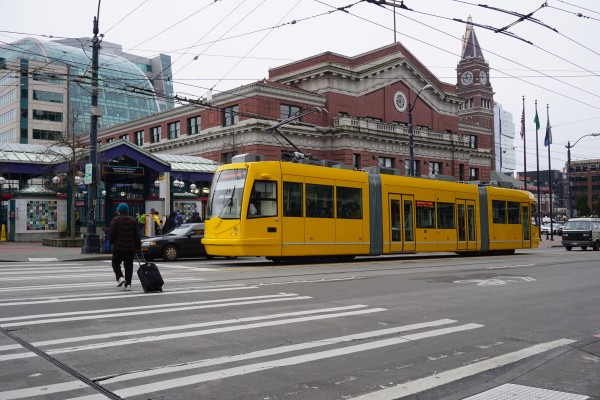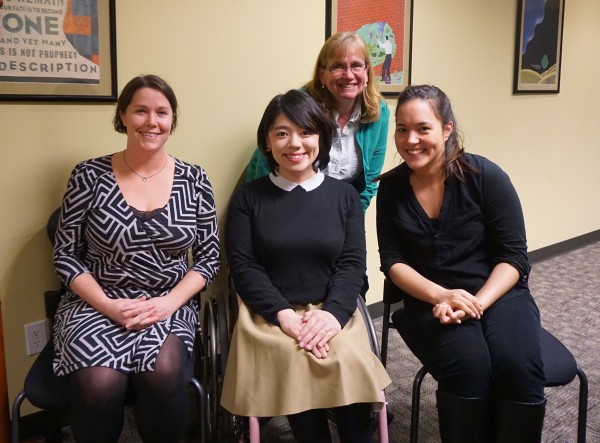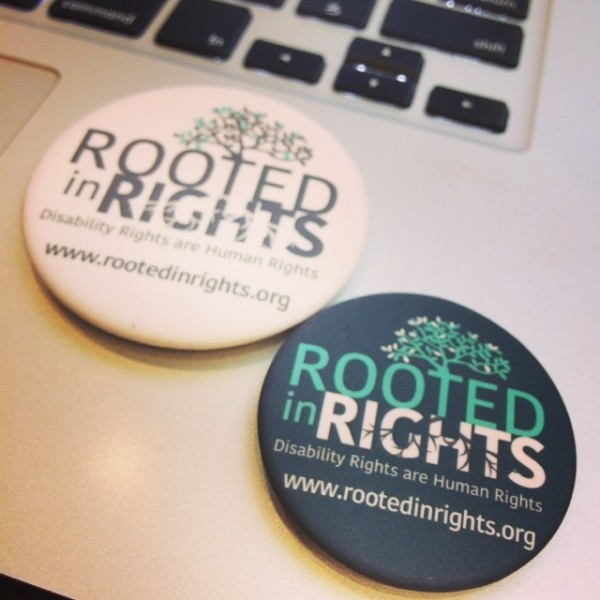This article is also available in: 日本語

In Seattle, I have visited Disability Rights Washington, a private non-profit organization, and the designated protection and advocacy agency in Washington State.
In 1977, the Governor chose Disability Rights Washington to protect the rights of people with disabilities statewide.
The federal government provides money to the protection and advocacy agency in every US state and territory to protect and advocate for people with disabilities, and their rights.
I have talked with Betty Schwieterman (Director of Systems Advocacy), Emily Cooper (Staff Attorney), and Tina Pinedo (Digital Communications Manager).

Today, in the US, many people with disabilities have equal opportunities to receive general education and work in various fields.
However, children born with disabilities during 1940s to 60s were often placed into institutions by the recommendation of their doctors to their parents.
Thousands of children were completely separated from the family and couldn’t get out from the institutions.
The condition in the institutions were actually horrible.
One day, a former psychologist that worked in an institution, Willowbrook State School, snuck reporter Geraldo Rivera into one of the living units after hours.
Rivera took pictures and video footage, that exposed the horrific living conditions people with developmental disabilities were living in.
Soon after, the information and images were shared with the in public: 6,000 people of all ages, crammed into a facility made for 4,000 – some not wearing clothes, and most receiving little to no care.
In response to the public outcry following the scandal, Congress created the Protection and Advocacy network in order to protect and advocate on behalf of people with disabilities.
Disability Rights Washington is the protection and advocacy agency in Washington State, and has federal access authority to monitor facilities where people with disabilities live and investigate incidences of abuse and neglect.
Here is a video explaining what the P&A network is:
Disability Rights Washington offers various supports to people with disabilities, free of charge.
In 2015, over 20,000 people received information and referral services regarding their rights, and more than 177,000 people with disabilities in Washington are potentially benefitting from Disabilities Rights Washington’s litigation outcomes.
Emily said,
My favorite thing what we do is expression of “Nothing About Us Without Us”.
We have people with disabilities advising us what to take for our priority.
We also call this “legal anarchy” because one of the things we do is we get information about people’s right directly to them and how to enforce.
So, people with disabilities don’t have to necessarily have a lawyer to take a case up.
It is not about lawyer. It is not about public policy or media. It is about clients.
We pay attention to their direction what they want to do.
In the US, people with disabilities are still facing discrimination and attached stigma because of their disabilities.
During my college years in Wisconsin, personally I did not have any experiences of discrimination based on my mobility disability.
However, in Syracuse, New York where I live right now, I experienced an incident which could be illegal. (*1)
While it is very common to file a lawsuit in the US, it takes time, money and a lot of energy.
Like other protection and advocacy agencies, Disability Rights Washington works to first provide people with disabilities information and resources about their rights so they can become stronger self-advocates.
Disability Rights Washington takes on fewer individual legal representation cases, in order to focus on systemic issues, that are then represented through class action litigation.
Disability Rights Washington involves staff, volunteers, community members, and self-advocates with disabilities to better understand issues and barriers that can be improved.
Therefore, all the supports are provided with the view of people with disabilities, or the “disability perspective,” which is really beneficial.

One of interesting projects that Disability Rights Washington does is “Rooted in Rights”.
The video and social media project, Rooted in Rights, produces videos in which people with disabilities talk about their reality, difficulties, and what need to be improved.
Discrimination and stigma happen because people do not have enough experience and often don’t understand the lives people with disabilities.
Rooted in Rights has shared so many videos to reduce the gaps between people with disabilities and people without disabilities for better understanding of both sides.
All the videos are related to disability rights, and filled with light tension of injustice people face solely based on their disability.
In that way, all people can pay more attention and think deeply by themselves.
I will share one of the videos by Rooted in Rights, which is showing accessible curb ramps.
“Show us your #CrappyCurb”
Many people might think curb cuts are not just for people with disabilities, but actually it is beneficial for people with bikes, strollers, luggage and other items that roll on wheels.
Rooted in Rights engages people to post a photo or video of a #CrappyCurb on Twitter, Instagram and Facebook, so that more people would notice inaccessibility in the city.
Fortuitously Betty, Emily and Tina know about Professor Arlene Kanter in Syracuse University who I interviewed before, and I remembered what Professor Kanter said to me
“Laws are only words on paper; they don’t mean anything unless and until they are implemented.”

In Japanese quote, we say “United three arrows” which means one arrow can be broken so easily ,but three arrows are united, that would require much more strength to break.
To take a big step or to involve more people about disability issues, I found it is very effective and meaningful to unite more people to spread the impact and build strength.
In order to raise awareness of issues related with disabilities, I started Moon Rider 7 Project 4 years ago.
Starting last year, Jeff and I are hosting online discussion events every month to talk about abilities and disabilities.
Through the online discussion events, we slowly increase the awareness of issues of disability, starting from Japan to all over the world.
Through each discussion, we discover new ideas to create a better future. One step at at time. Come and join us.
You can read more about the past event:
https://moonrider7.com/tag/ability-for-success/
*1 Please refer to the following article.
A Bus Driver Refused to Let Me Board the Bus and How People Resolve The Issue in the U.S.
*2 Please refer to the following article.
